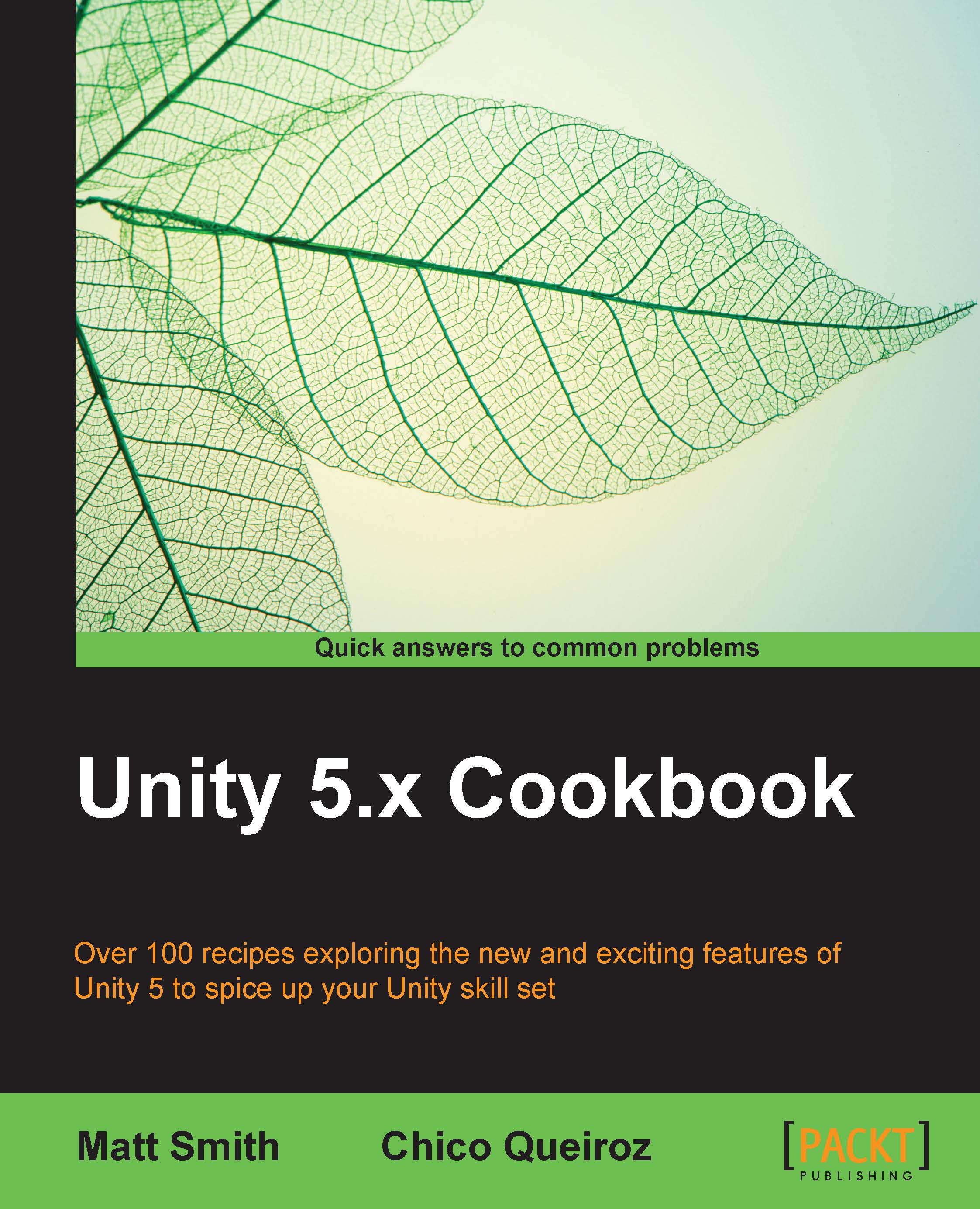-
Book Overview & Buying

-
Table Of Contents

Unity 5.x Cookbook
By :

Unity 5.x Cookbook
By:
Overview of this book
Unity 5 is a flexible and intuitive multiplatform game engine that is becoming the industry's de facto standard. Learn to craft your own 2D and 3D computer games by working through core concepts such as animation, audio, shaders, GUI, lights, cameras, and scripting to create your own games with one of the most important and popular engines in the industry.
Completely re-written to cover the new features of Unity 5, this book is a great resource for all Unity game developers, from those who have recently started using Unity right up to game development experts.
The first half of the book focuses on core concepts of 2D game design while the second half focuses on developing 3D game development skills. In the first half, you will discover the new GUI system, the new Audio Mixer, external files, and animating 2D characters in 2D game development. As you progress further, you will familiarize yourself with the new Standard Shaders, the Mecanim system, Cameras, and the new Lighting features to hone your skills towards building 3D games to perfection. Finally, you will learn non-player character control and explore Unity 5's extra features to enhance your 3D game development skills.
Table of Contents (14 chapters)
Preface
 Free Chapter
Free Chapter
1. Core UI – Messages, Menus, Scores, and Timers
2. Inventory GUIs
3. 2D Animation
4. Creating Maps and Materials
5. Using Cameras
6. Lights and Effects
7. Controlling 3D Animations
8. Positions, Movement and Navigation for Character GameObjects
9. Playing and Manipulating Sounds
10. Working with External Resource Files and Devices
11. Improving Games with Extra Features and Optimization
12. Editor Extensions
Index
